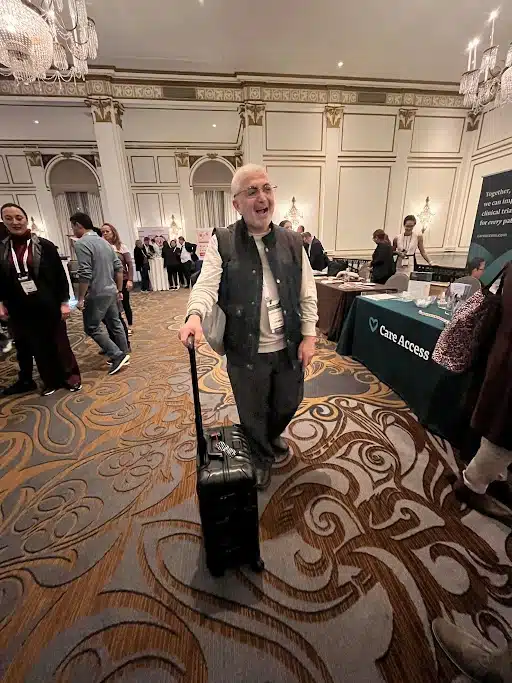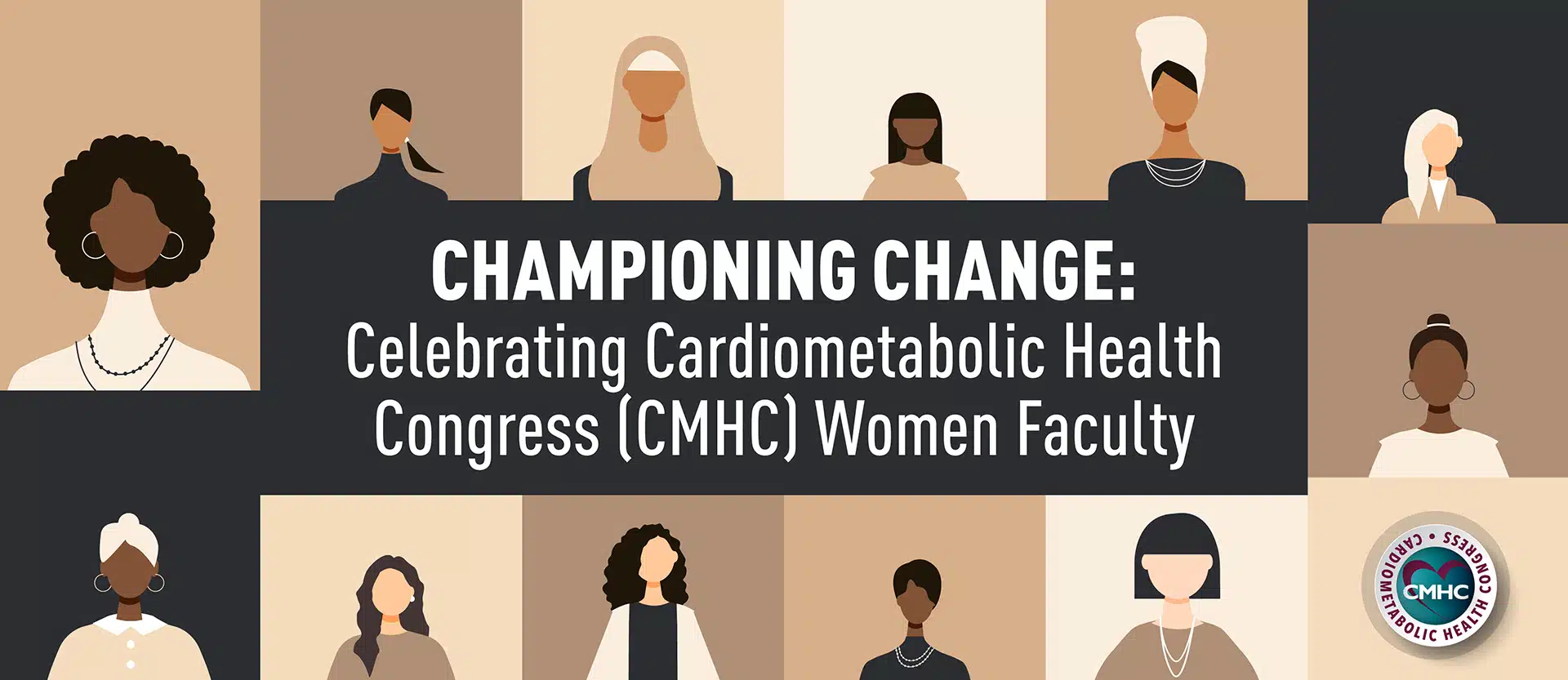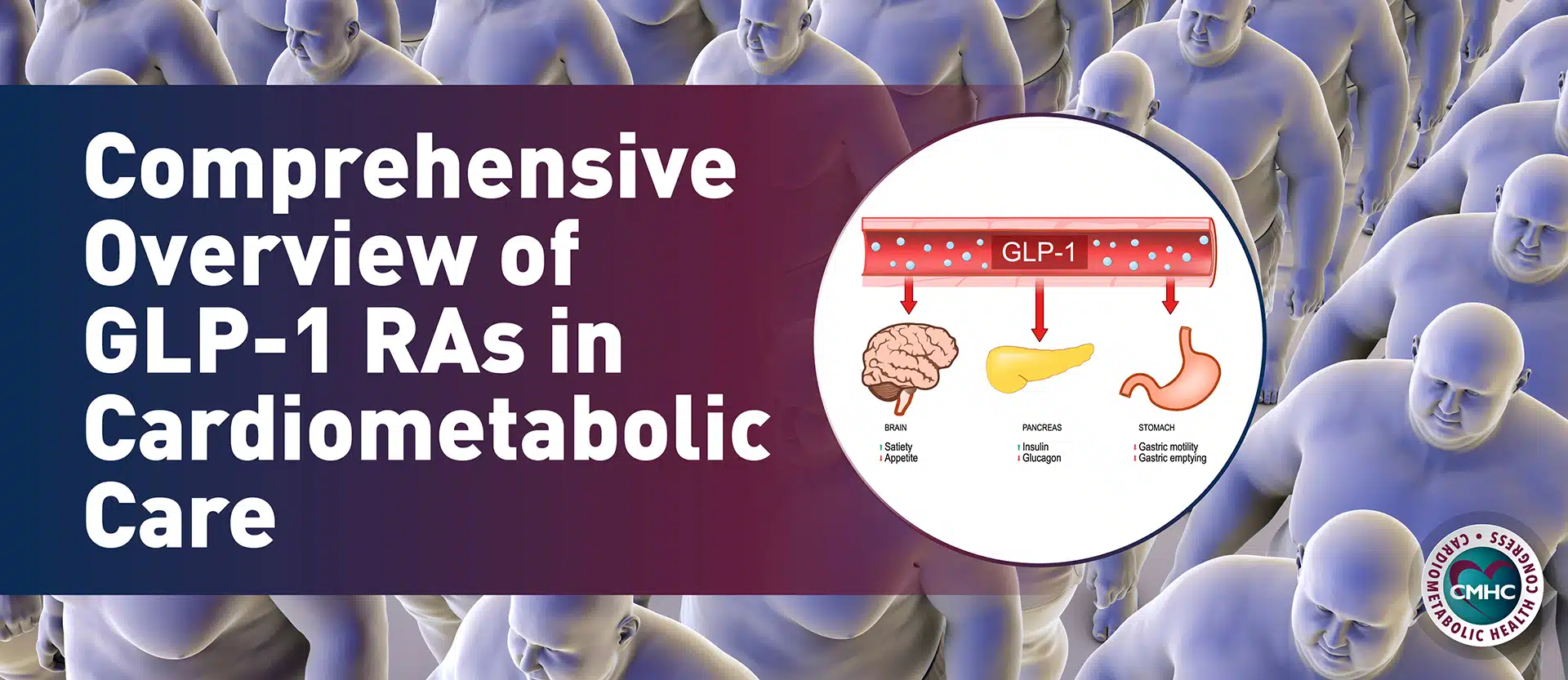
The third day of Social Determinants and Digital Advances in Cardiorenal Metabolic Health, the 18th Annual Cardiometabolic Health Congress (CMHC), delivered insights on selecting and implementing lipid-lowering therapies, optimizing glycemic control in patients with diabetes, and much more!
Understanding the Role of Lp(a) in the Prevention of ASCVD
Early risers were rewarded with a breakfast symposium complete with invaluable practice pearls from Patrick M. Moriarty, MD, Christie M. Ballantyne, MD, and Erin D. Michos, MD, MHS, on understanding the inflammatory mechanism of Lipoprotein(a) and its role as a therapeutic target in the prevention of atherosclerotic cardiovascular disease (ASCVD).
The pro-inflammatory and pro-atherosclerotic properties of Lp(a) mean that it should be an easy, one-time measurement, but less than 0.1% of health care providers are testing for it, said Dr. Moriarty.
When thinking about if and when to measure Lp(a) in a patient, Dr. Michos said that by “Identifying those who have very high levels we can optimize and intensify the management of other risk factors and stress the importance of familial risk by performing cascade testing on relatives who may also be affected.” Dr. Ballantyne agreed, saying “When you ask someone to measure their Lp(a) you are also doing their entire family a service.”
The panel concluded with patient case presentations that highlighted the need to test for Lp(a) even with a calcium score of zero, especially in younger patients. “The mechanism of action in Lp(a) is inflammation not plaque formation, so the calcium score doesn’t provide any insights on Lp(a) levels,” said Dr. Morairty in closing.
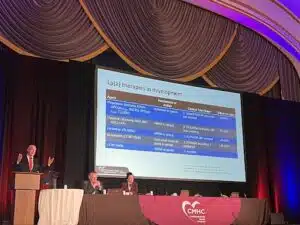
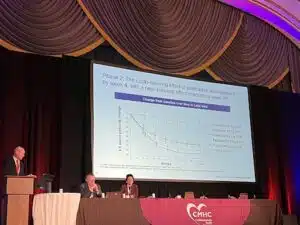
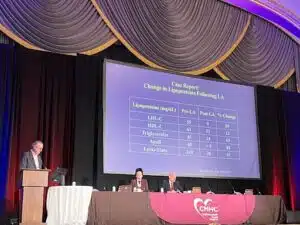
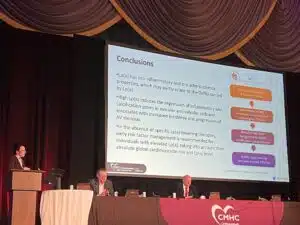
Colchicine for Chronic Atherosclerosis as an Adjunct to Statin Therapy
On June 20, 2023, the U.S. Food and Drug Administration (FDA) officially endorsed colchicine as an anti-inflammatory option to lower cardiovascular risk. Paul M. Ridker, MD, MPH, informed the audience that “Lowering lipids and inhibiting inflammation are not in conflict – you can do both.”
He showed the audience study results supporting the use of low-dose colchicine to provide the largest relative risk reduction for recurrent cardiovascular events when given as an adjunct to statins.
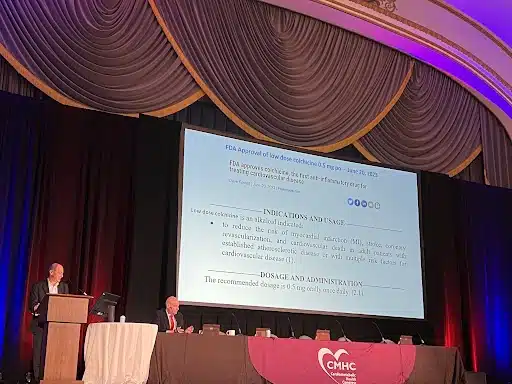
"The fact that you are here today at the 18th Annual Cardiometabolic Health Congress means that you practice cutting-edge care."
Dr. Paul M. Ridker
Assessing and Addressing Statin Intolerance
If anyone knows how to navigate the trials of statin intolerance, it’s Erin D. Michos, MD, MHS. In her role as the director of Women’s Cardiovascular Health Research at Johns Hopkins Dr. Michos sees firsthand that female patients are more likely to discontinue statin therapy because of self-reported side effects like muscle symptoms. She referenced the 2018 Guideline on the Management of Blood Cholesterol from the American Heart Association and American College of Cardiology when determining how to navigate the conversation around a patient wanting to discontinue a statin.
“First, look for another possible cause of the muscle discomfort, then try another dose or another type of statin, and attempt to counsel patients on lifestyle tips to ease symptoms.” It is worth the effort, concluded Dr. Michos, to keep your patients on these affordable and life-saving medications to lower their LDL-C.

Dr. Erin D. Michos is an associate professor in the Division of Cardiology at Johns Hopkins School of Medicine, with joint appointment in the Department of Epidemiology at the Johns Hopkins Bloomberg School of Public Health. She is the director of Women's Cardiovascular Health and the Associate Director of Preventive Cardiology with the Johns Hopkins Ciccarone Center for the Prevention of Cardiovascular Disease.
Glycemic Control and Treatment Considerations in Diabetes
After lunch, the educational focus shifted to one of the most talked about cardiometabolic conditions, in terms of both the grim rising incidence and the exciting field of possible therapies. Anne L. Peters, MD, delivered opening remarks. In her work in Southern California, Dr. Peters explained that she sees two very different patient populations. In her clinic in Beverly Hills she sees patients who can afford the latest technology like continuous glucose monitoring devices and are interested in new GLP1 agents to control their glucose and lose weight. On the flip side, she treats low-literacy and unhoused patients in East Los Angeles, where it is difficult to implement therapies to control diabetes because, for example, all that is available to them is the high-carbohydrate food they receive from the food shelf.

Dr. Anne L. Peters is professor at the Keck School of Medicine at the University of California and director of its Clinical Diabetes Program. She is a world leader in diabetes research and advocates for policy and guideline reform to reflect and serve marginalized populations who experience disproportionate morbidity and mortality burden from all types of diabetes.
“We have entered a new era of therapeutic options for diabetes,” began Vanita R. Aroda, MD. Because weight directly contributes to all mechanisms of glucose homeostasis, lipid profile, A1c, fasting glucose, and other significant markers are all improved when a patient loses about 15% of their body weight. For this reason, she concluded, “Weight should be a primary target of controlling and managing diabetes.”
Juan Pablo Frías, MD, is a diabetes researcher based in Los Angeles with over 25 years of experience in the field of endocrinology and metabolism. Based on several studies, Dr. Frías shared that “Overall glycemic burden plays a major role in total mortality related to diabetes in high-income countries.”
Combination Therapies to Optimize Glycemic Control
After a break in which attendees mingled with exhibitors and enjoyed refreshments and small plates of healthy snacks, Athena Philis-Tsimikas, MD, began her presentation on how to combine therapies for the best outcome in achieving glycemic targets. As Scripps Whittier Diabetes Institute in San Diego, Dr. Philis-Tsimikas is well-versed in partnering with community organizations to bring innovative diabetes care solutions to underserved patients.
"Combination therapy for diabetes can enhance treatment efficacy while diminishing side effects. The two biggest drawbacks of combination therapy is that you lose some dosing flexibility with these fixed ratio drugs, and that it will be harder to pinpoint any potential adverse reactions."
Dr. Philis-Tsimikas
How Social Determinants of Health Impact Type 2 Diabetes Treatment
Shivani Agarwal, MD, MPH, rounded out the day’s sessions with a strong message to the provider audience that social determinants of health affect their patients, regardless of whether or not the provider understands what that means. She mapped out the cascading effects of chronic stress that result from poverty, debt, racism, homelessness and other social situations faced by patients from underserved populations. “Elevated cortisol sets into motion a weathering effect of oxidative stress, inflammation, cellular dysfunction, and ultimately cardiometabolic decline in many forms.”
"Historical discrimination and racism have led to the disenfranchisement of racial minority populations in the U.S. We may try to be unbiased, but we are a part of a system and a fabric that doesn't give us a choice."
Dr. Shivani Agarwal
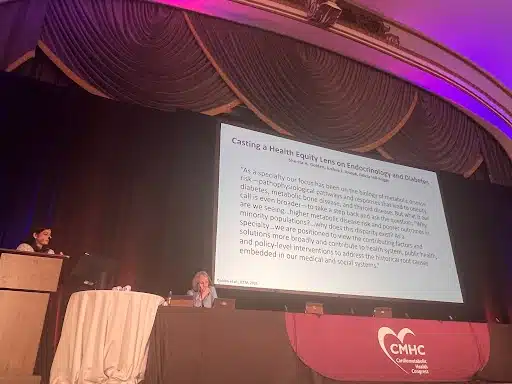
Happy Hour and Prize Drawing
The evening was abuzz with excitement leading up to the Passport to Prizes drawing, where every year, three lucky attendees win amazing prizes for visiting each booth in the exhibit hall and submitting their completed Passport to Prizes form. This year, attendees were competing to win a one-month subscription to Hello Fresh, an Apple Watch, or the grand prize of a TUMI suitcase!
